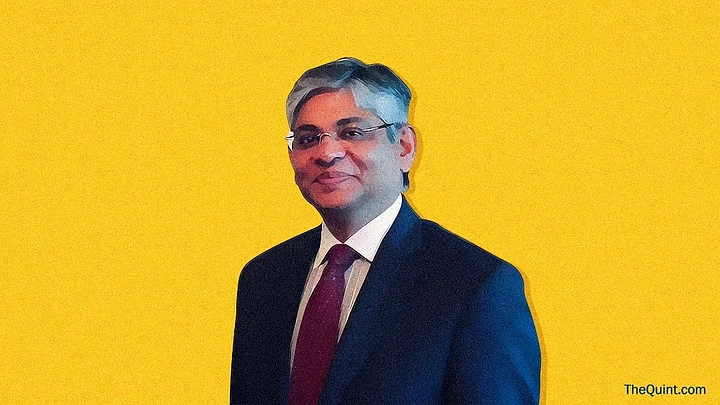India hasn’t had a regular deputy National Security Advisor (NSA) for past almost three months now. The reason: Arvind Gupta, who had been the deputy NSA for past three years in the Modi government, exited from this post on 5 August.
However, the reasons why Gupta had to leave at this point of time are shrouded in mystery, if one considers the chatter within the intelligence and strategic communities.
Gupta, an Indian Foreign Service (IFS) officer of 1979 cadre, demitted office on 5 August, the date his “tenure” expired. In October, he took over as the director of the Vivekananda International Foundation (VIF), a Rashtriya Swayamsewak Sangh (RSS)-backed think tank that is reputed to have its alumni in key positions in the Narendra Modi government, and has been a favorite target of the Congress party for that reason.
No regular appointment has been made yet for the deputy NSA post since Gupta quit. RN Ravi, a 1976 batch Kerala cadre IPS officer, has been officiating as the deputy NSA since Gupta's exit.
This is additional charge for Ravi, who is already serving as chairman of Joint Intelligence Committee (JIC), a body tasked to assess intelligence gathered by various snoop agencies including IB and RAW. Last August, Ravi's tenure as JIC chairman was extended by one year.
Arun Singh, the Strongest Contender
The hunt for the next deputy NSA is on.
One name that has been doing the rounds in the Indian strategic establishment is that of Arun Singh, a seasoned diplomat from the 1979 IFS batch.
As of now, Arun Singh, India’s former ambassador to France and the United States, is the strongest contender for the post of deputy NSA. An able contender for the post could have been Nirupama Rao, a former foreign secretary and an IFS officer of the 1973 batch, but she doesn't seem to be interested.
The next deputy NSA will obviously have to get the nod from the most powerful man, Prime Minister Narendra Modi. But equally importantly, he or she has to have concurrence from the current NSA Ajit Doval, India’s fifth NSA and a 1968 Kerala cadre Indian Police Service (IPS) officer.
The Indian tradition thus far has been of having the NSA and the deputy NSA from either the IFS or the IPS. If the NSA is an IPS officer, then the deputy NSA has to be from the IFS and vice versa.
Then, there is another unwritten law: that the deputy NSA cannot be senior to the NSA. This means that the new deputy NSA in the current scenario has to be an IFS officer who joined service post 1968. Arun Singh fits the bill perfectly in both the cases.
Satish Chandra, an IFS officer and a former deputy NSA, can be ruled out of contention for this reason as he is senior to Doval.
Murmurs Surround Arvind Gupta’s Exit
There has been some chatter within the intelligence and strategic communities of India as to why Arvind Gupta had to hang up his boots as the deputy NSA, with some voices suggesting that he was ‘removed’.
However, Gupta told this writer that such rumours were unfounded and he ‘demitted’ his office after his three-year tenure was over.
Yet, a galling question remains; why was his term not extended? An even bigger question is why India doesn’t have a regular deputy NSA even nearly three months after he quit. There are no answers which could satisfy the wagging tongues within the elite strategic community.
The deputy NSA, as the title suggests, acts as the NSA's deputy and works on the areas not directly covered by the NSA.
Gupta, for example, was working on areas like Russia and Central Asia, among other things, to complement the NSA’s work profile. Then, there are established mechanisms of the deputy NSA’s work profile, like having institutionalised mechanisms of having deputy NSA-level talks with countries like Russia in the bilateral context and BRICS (Brazil, Russia, India, China and South Africa) in the multilateral context.
In Break from Practice, Modi Govt Likely to Appoint Just One Dy NSA
Over and above all this, the deputy NSA is also the Secretary of the National Security Council Secretariat (NSCS), which makes them a hands-on key official in the national security context too. For this reason, there has been at least one occasion when India has had two deputy NSAs, one for internal security and another for international diplomacy.
However, Arvind Gupta was the sole deputy NSA in the Modi administration. And the chances are that the same practice will continue for the rest of PM Modi’s tenure.
The Modi government is likely to appoint only one deputy NSA for the rest of its tenure, though administratively there is no cap on the number of these crucial posts. Arun Singh looks set to be the front-runner for now.
(Rajeev Sharma is a strategic analyst and columnist who tweets @Kishkindha. This is an opinion piece and the views expressed above are the author’s own. The Quint neither endorses nor is responsible for the same.)
(Breathe In, Breathe Out: Are you finding it tough to breathe polluted air? Join hands with FIT to find #PollutionKaSolution. Send in your suggestions to fit@thequint.com or WhatsApp @ +919999008335.)
(At The Quint, we question everything. Play an active role in shaping our journalism by becoming a member today.)
